From Daedelic Entertainment comes the fourth installation in the Deponia game series. The game follows Rufus on his latest adventure, where he uses time travel in an attempt to create a better ending.
Controls
At the start of Deponia Doomsday, you’re offered a quick tutorial that teaches you everything you need to know.
The controls are intuitive: left click to use/interact/take, right-click to look/examine. You can bring down you inventory by scrolling the mouse-wheel down, and close it again by scrolling up. Holding the middle mouse button highlights all interactive elements on the screen.
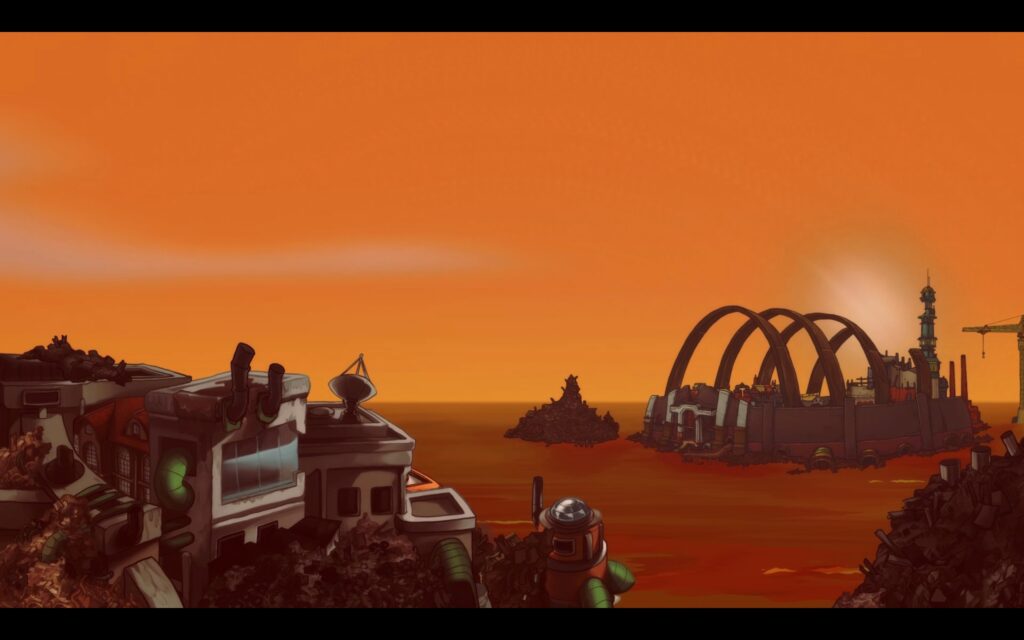
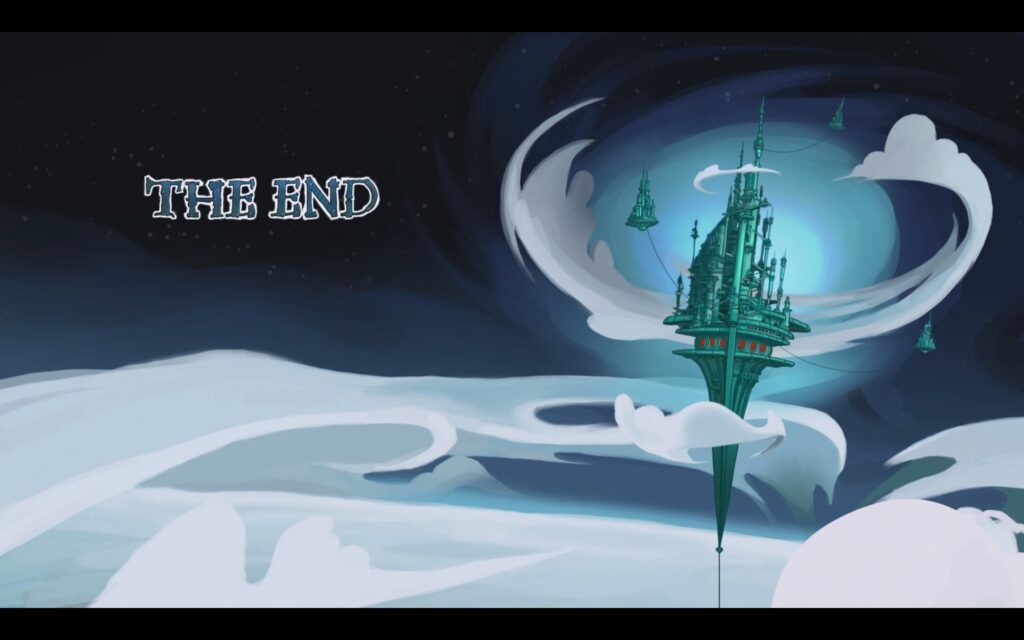
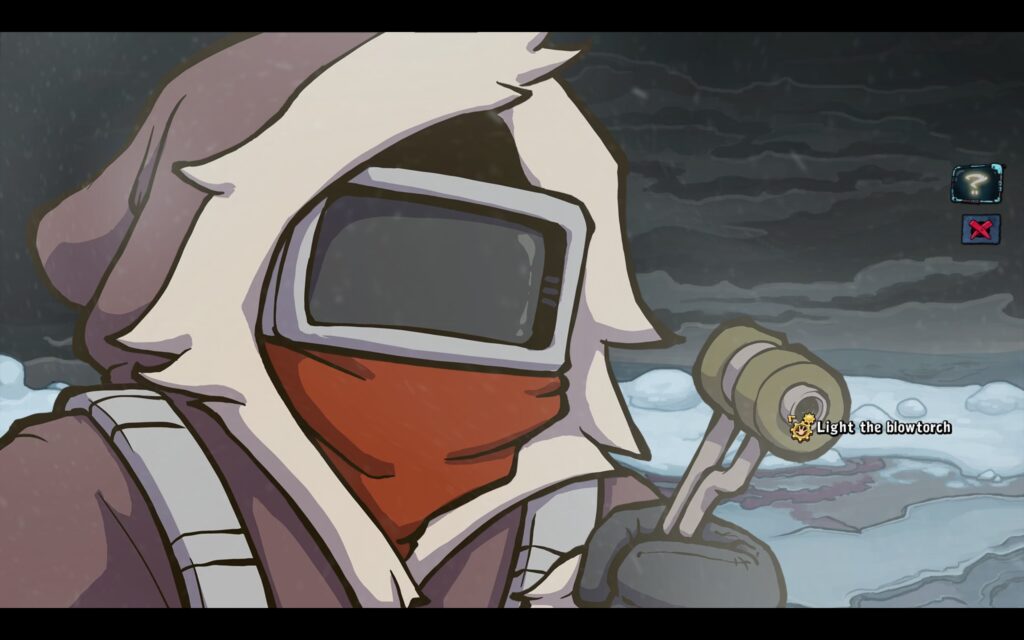
I really like this control scheme, as it makes the game fully playable with the mouse alone. Within minutes, the controls feel like second nature, letting you focus on the game itself. The highlight feature is especially handy, eliminating the need to pixel-hunt across the screen. It’s a quality-of-life addition I wish more point-and-click games would adopt.
Gameplay
The game uses all of the usual features of a point-and-click adventure. You can pick up items, combine items, use items on the world, give items to characters, and so on. This leads to the usual puzzle solving that you get in all games. Most of the solutions are fairly logical, others you can figure out by talking to specific characters. There were a couple of times where I was stumped on what to do, and ended up trying every combination I could find to figure out how to move on.
Deponia Doomsday also has some unique puzzle typess. One is essentially a timed button masher, often used when a character needs to exert strength. This gives the player a tactile sense of the effort required.
Another involves timed events were you have to perform specific actions before a timer runs out, or you will fail and have to try again. This can lead to you repeating sections over and over, as the game is based around many time loops that Rufus and his friends get trapped inside.
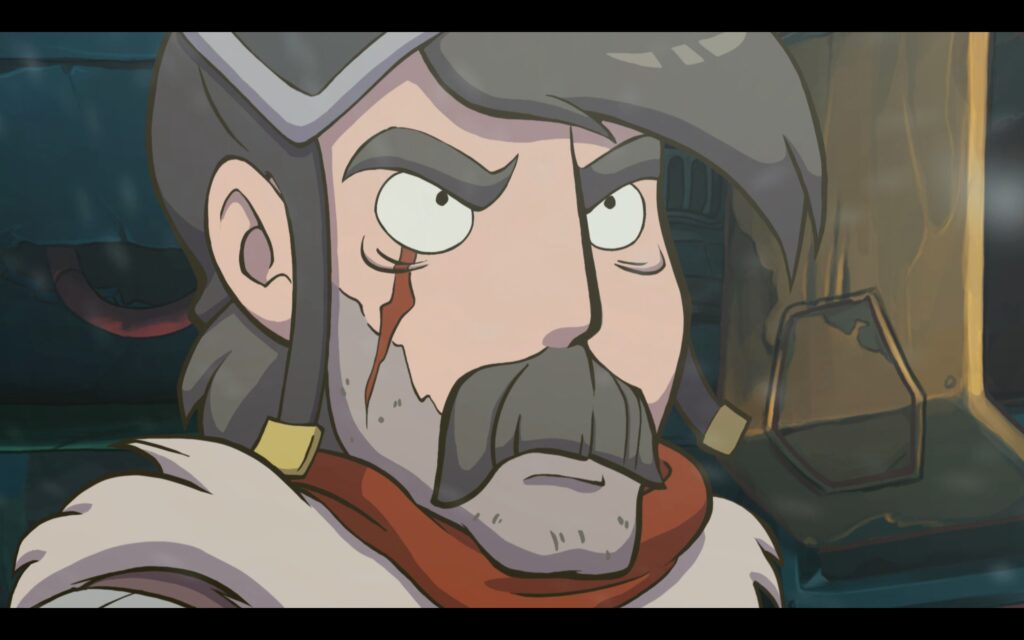
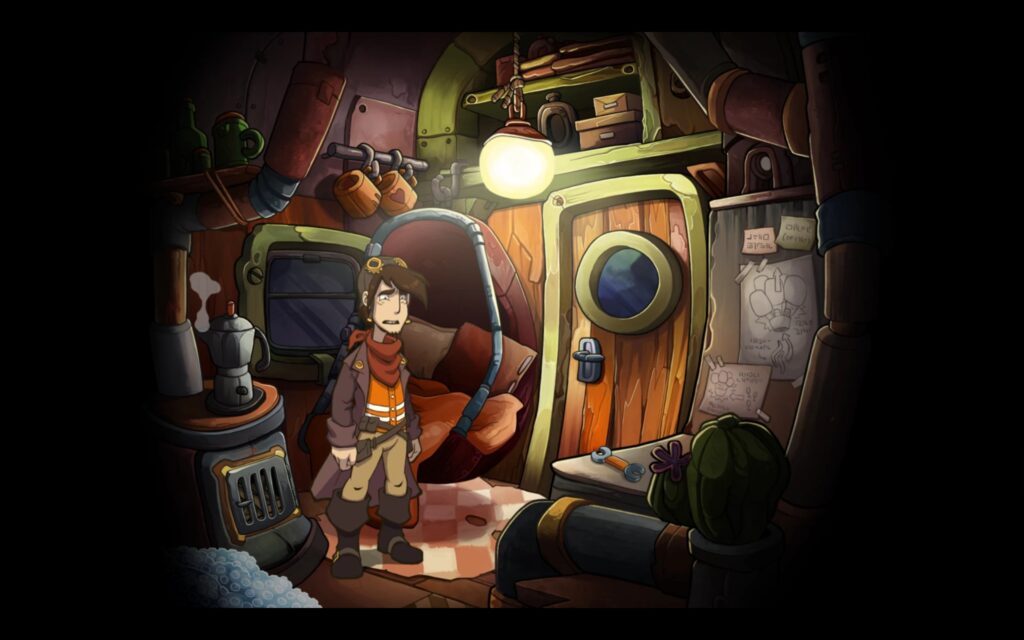
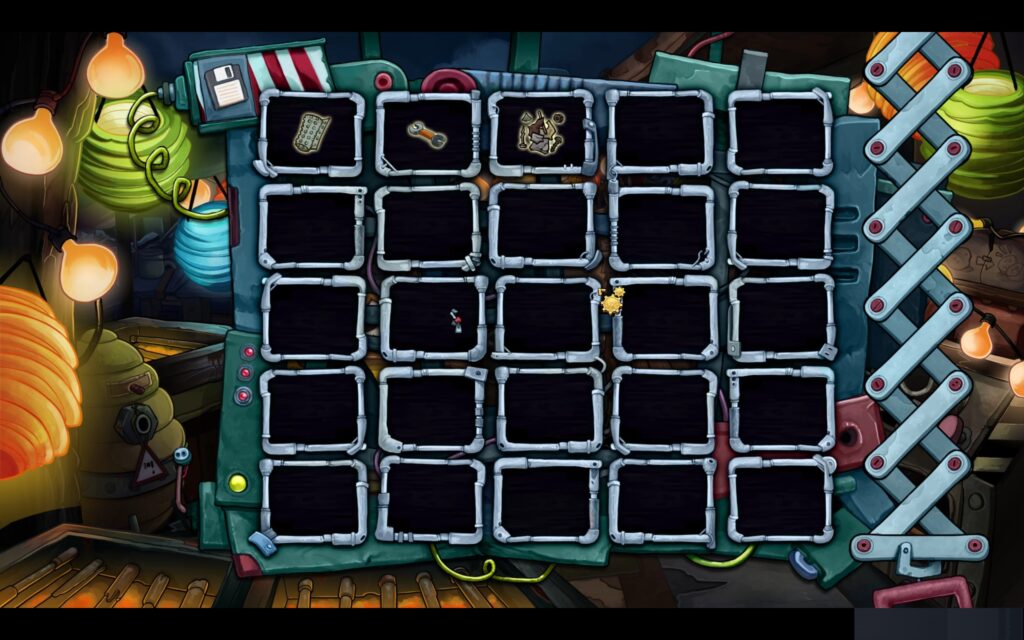
This can lead to some frustration as you don’t know exactly what you need to do, and dialogue scenes eat into your time. You will end up skipping dialogue to save precious seconds, which seems counter-productive on a game based around its humorous script.
One particular scene involved a loop where you have a limited time to change things in the past so you have the right items in the future. Fail, and you go to the past to change things again and hope you got everything by the time you return to the future. With such a limited time, I found it impossible to progress without consulting a guide.
Presentation
Where the game does shine, however, is in its visuals and music. The game uses hand-drawn graphics in a comic book styling, and they look fantastic. Each character is distinct and well animated. The backgrounds are full of detail, and often include subtle animations that bring the world to life.
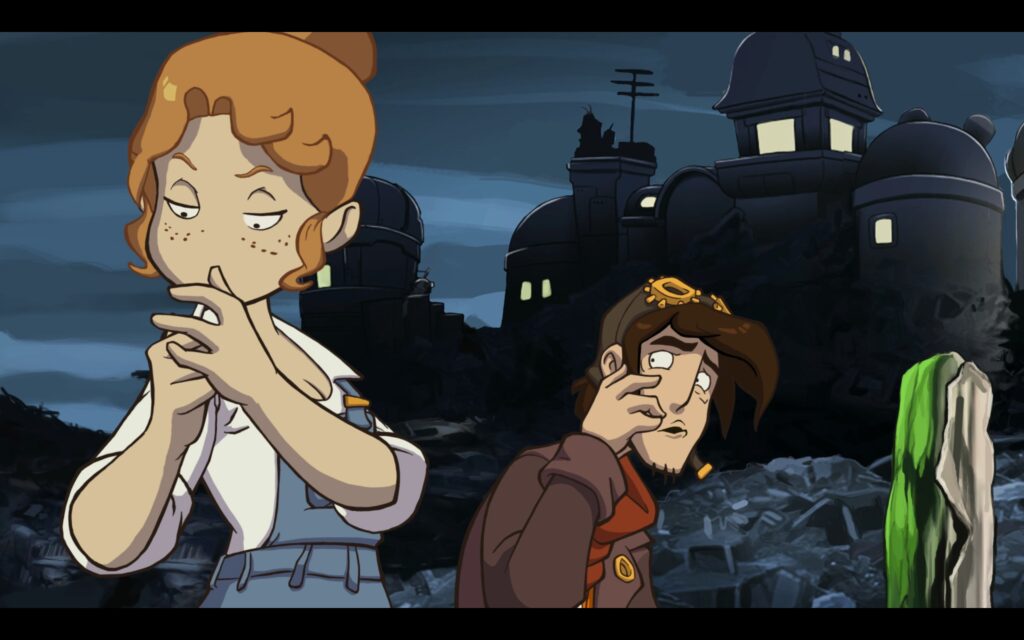
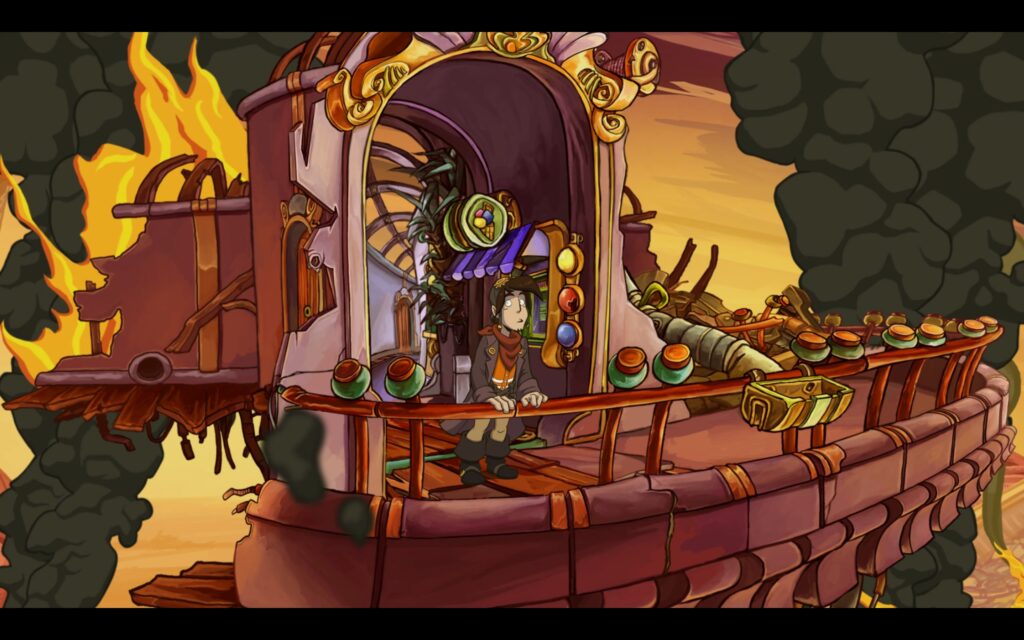
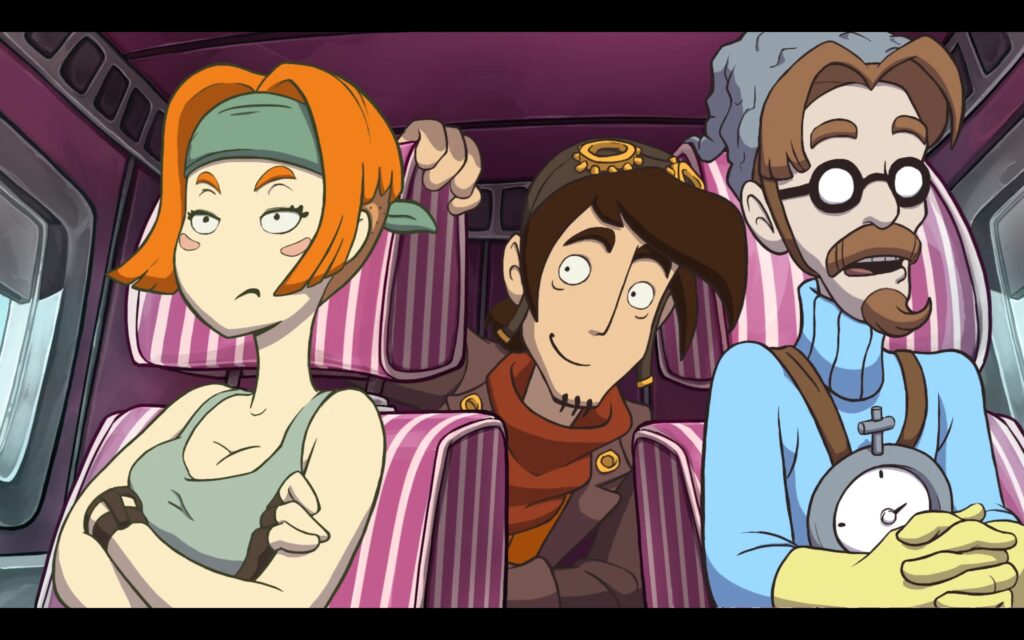
The graphics are accompanied by a simple soundtrack that gives each area its own atmosphere. Though they are short tracks on a loop, they never play so long that they become irritating, and explore various musical styles, from 8-bit electronica to romantic soul to country.
Story
The story begins with the ending to the previous game, then has a short sequence where an old Rufus destroys the world. Then Rufus wake up, young as ever, believing everything to have been a dream. We then follow him in his attempt to get to Elysium, when a time traveller screws everything up by destroying his girlfriend’s wine glasses.
This leads into a great many time travel based puzzles and shenanigans where Rufus has to try and figure out how to get into the space ship with the glasses still intact. The time travel not only serves as a basis for the story, but also for many of the puzzles you have to solve as the player.
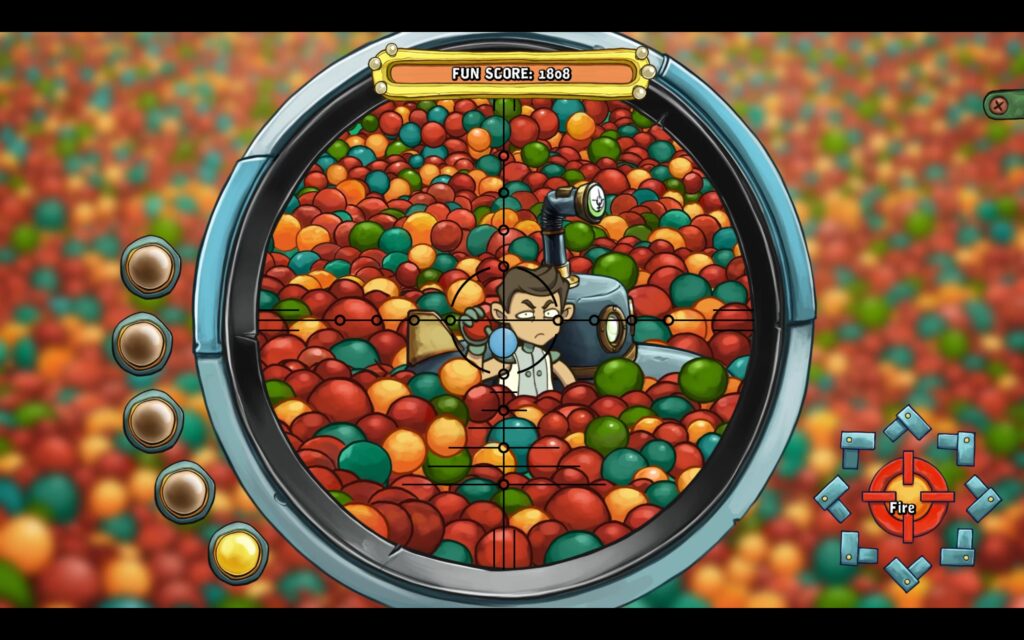
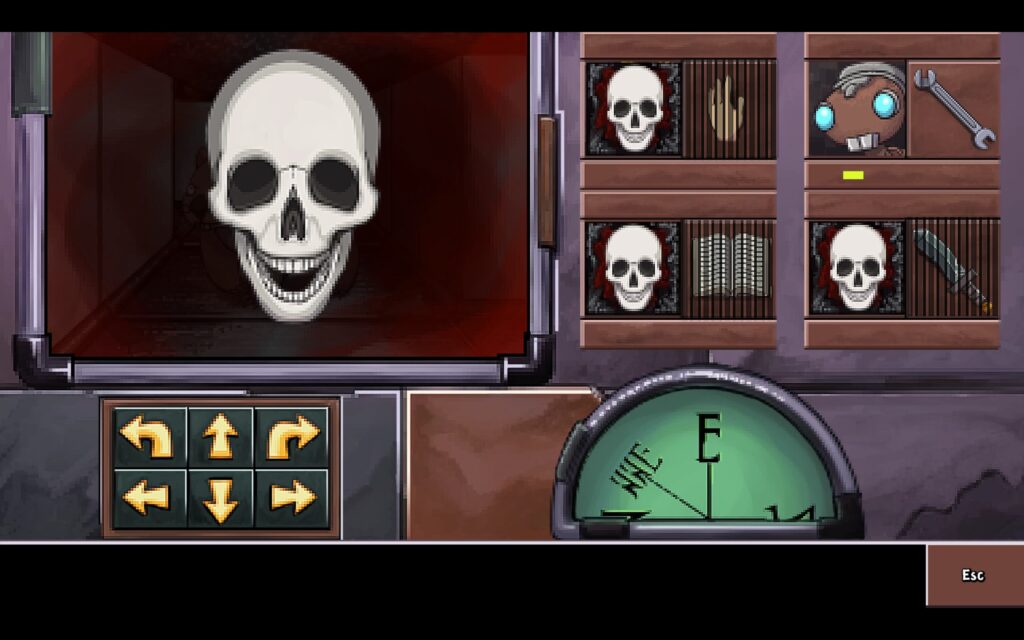
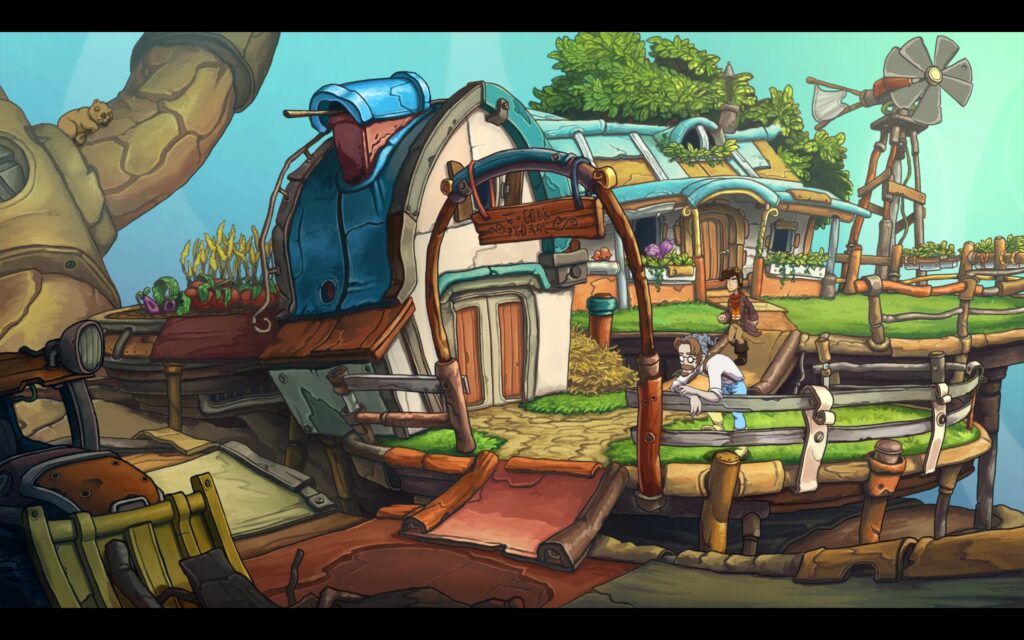
The script leans heavily into humour, as many of these games do. I did find myself laughing a few times at the absurdity of things, so it works well.
The ending, however, is a little different. In hindsight, it’s a meta-commentary/joke about how poorly received the ending to the previous game was. As this is my first Deponia game, the joke flew over my head. Add in to that, they play around with time travel mechanics a little too much. I know they’re going more for the jokes about time travel, but it made the ending a little hard to follow.
Closing Thoughts
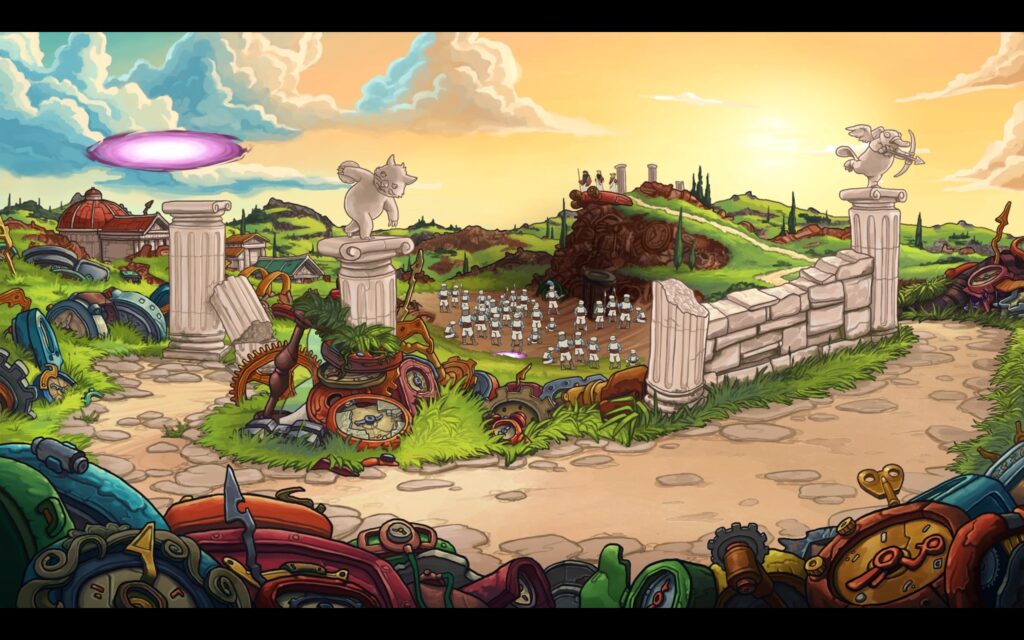
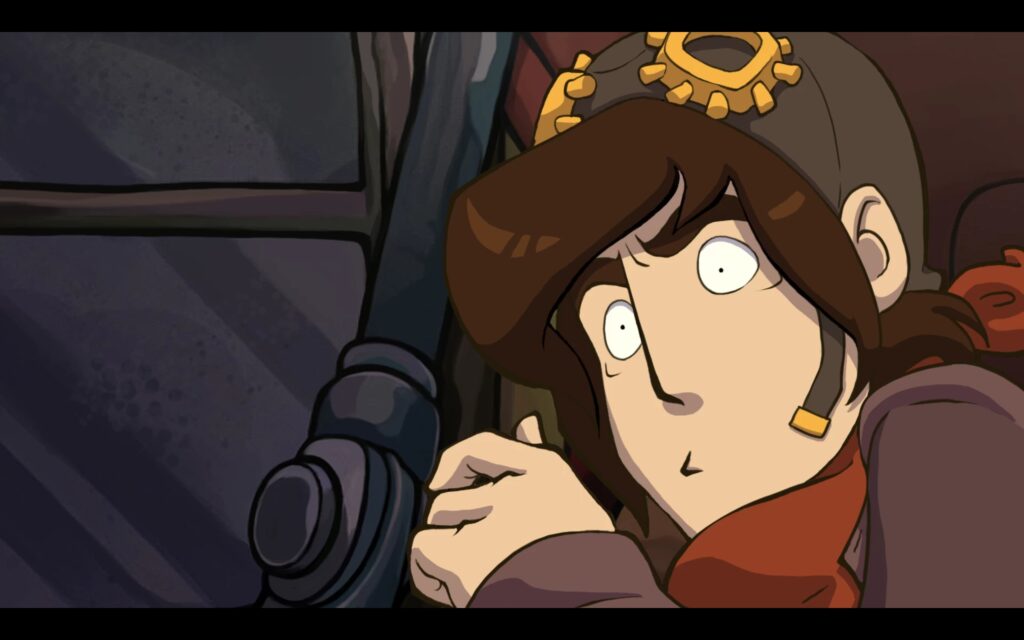
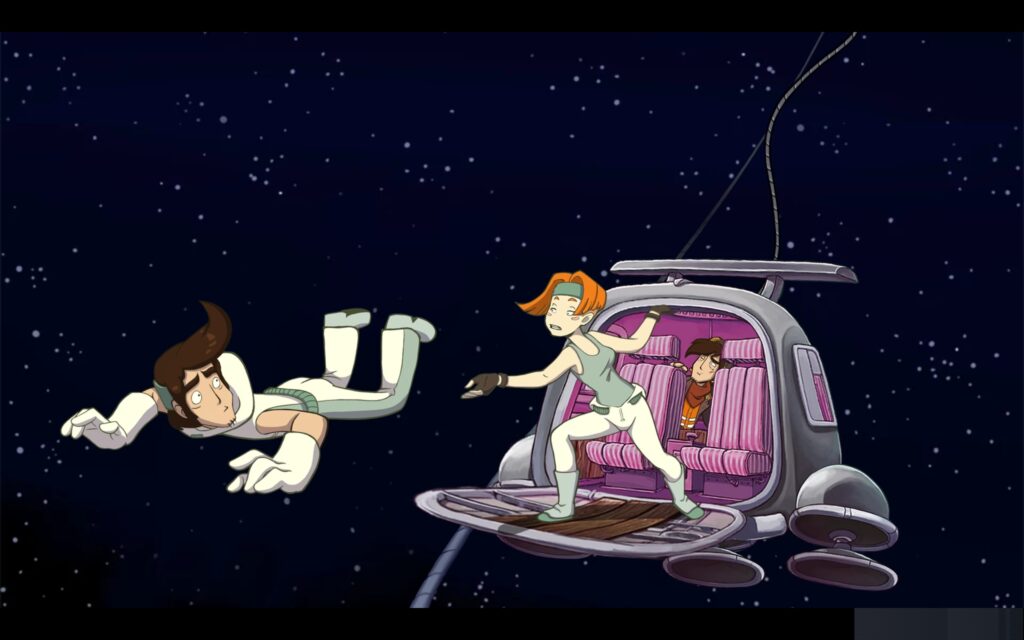
Deponia Doomsday is an entertaining and challenging game, though the challenges can become frustrating at times. I have to hand the developers credit for creating both an interesting story and original mechanics with the time travel concept, even if they don’t always work. The jokes about the ending do work in hindsight, but I would say that you’d really need to have played the earlier games to appreciate this one fully.



